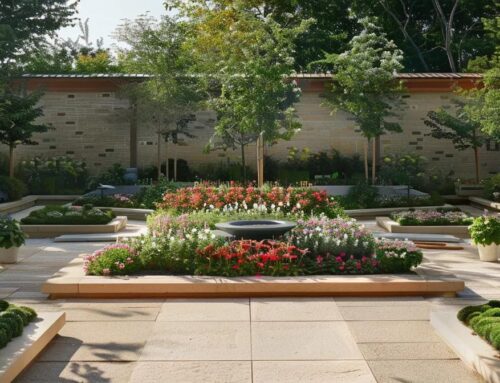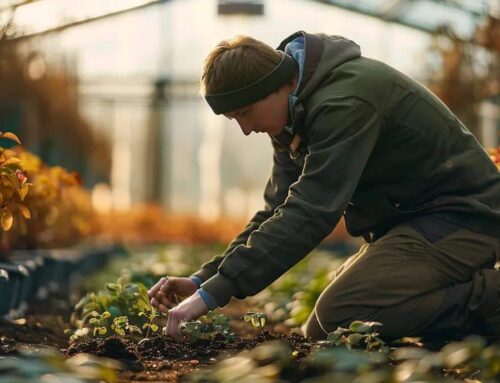Planning your dream outdoor kitchen can transform your backyard into a stylish, functional cooking and entertainment space. In this guide, you will learn how to calculate outdoor kitchen costs, design an optimized layout, select high-quality materials, plan for utilities, ensure durability against the elements, and review budget examples. This article is designed with architecture students and homeowners in mind who are seeking clear, research-backed insight to improve their outdoor cooking space. With expert project management consulting from End2End Logix Inc, you can maximize profitability, streamline operations, and recover value from surplus inventory when planning your outdoor kitchen.
1. Calculating Outdoor Kitchen Costs – Understanding Your Investment

Calculating outdoor kitchen costs is the first and most critical step to ensure a sound investment. To determine precise figures, you should break down the expenses into design, materials, labor, and permits. According to a 2023 report by the National Kitchen & Bath Association, outdoor kitchen projects can range from $10,000 to $50,000 depending on complexity and material selection.
Begin by compiling a list of required elements such as countertops, cabinets, appliances (like barbecue units and sinks), and additional accessories. Factor in local labor rates and potential permit fees, which could increase costs by 10%–15%. End2End Logix Inc advises using detailed spreadsheets to track each expense and to compare vendor quotes for accuracy.
Detailed cost estimation allows you to set a realistic budget and avoid surprises later on. It also helps when applying for financing or simply assessing your project’s return on investment.
Accurate cost calculation sets a solid foundation. Next, let’s explore how to creatively design your outdoor kitchen space.
2. Designing an Outdoor Kitchen Space – Optimizing Functionality and Flow

Designing an outdoor kitchen space is essential to balance functionality, aesthetics, and practicality. A well-designed layout ensures that cooking zones, seating areas, and storage are seamlessly integrated into your outdoor environment. Architects and design experts recommend using the “work triangle” concept—a principle borrowed from interior kitchen layouts—to optimize movement between the grill, sink, and refrigerator.
Modern design software and 3D modeling tools can help you visualize placement and traffic flow. For instance, a design that minimizes clutter while emphasizing open lines will promote social interaction and cooking efficiency. End2End Logix Inc emphasizes that thoughtful planning not only elevates the design but can also maximize available space on your patio or deck.
Incorporate both fixed and movable elements in your design to adapt to different events and weather conditions. Selecting durable and weather-resistant furniture along with integrated storage solutions enhances functionality.
Designing the perfect space requires both creativity and technical insight. Next, focus on choosing the quality materials that will stand the test of time.
3. Selecting Quality Materials for Outdoor Kitchens – Ensuring Longevity and Style

Selecting quality materials for outdoor kitchens is crucial for long-term durability and aesthetic appeal. Opt for stainless steel appliances, natural stone or concrete countertops, and weather-resistant cabinetry that resist rust and corrosion. A 2022 study published in the Journal of Architectural Engineering highlighted that high-quality, corrosion-resistant materials can extend the lifespan of outdoor installations by up to 40%.
When selecting materials, consider factors such as climate, exposure to moisture, and maintenance requirements. For example, stainless steel is prized for its strength and ease of cleaning, while natural stone can provide a timeless look that harmonizes with a garden setting.
Always ask for warranties and detailed specifications from vendors to ensure that each component meets industry standards. End2End Logix Inc recommends working with suppliers known for premium craftsmanship to secure your outdoor kitchen investment.
Table: Material Comparison
The following table compares various quality materials for outdoor kitchens with their key attributes:
| Material | Key Attributes | Benefits | Durability (Years) |
|---|---|---|---|
| Stainless Steel | Rust resistant, sleek finish | Easy maintenance; modern look | 20-30 |
| Natural Stone | High strength, temperature resistant | Elegant; withstands heat | 25-35 |
| Concrete | Customizable, durable | Versatile; cost-effective | 20-30 |
| Composite Materials | Weather-resistant, low maintenance | Long-lasting; eco-friendly | 15-25 |
This table provides a clear comparison of material types so that you can select the best fit for both your design and functional requirements. This tangible breakdown emphasizes that quality materials not only improve performance but also add to the overall investment value.
Choosing the right materials is pivotal to your outdoor kitchen’s success. Now, let’s discuss the integration of essential utilities and infrastructure.
4. Planning Utility and Infrastructure Needs – Connecting Your Kitchen Seamlessly

Planning utility and infrastructure needs is integral to ensuring your outdoor kitchen is both practical and long-lasting. Incorporate plumbing, electrical, and gas connections in your design from the outset to avoid costly redesigns later. A 2023 survey by the American Society of Home Inspectors revealed that proper utility planning can reduce future maintenance issues by over 30%.
Map out the locations of sinks, refrigerators, lighting, and cooking equipment to optimize connectivity. Opt for energy-efficient appliances and weatherproof wiring to enhance safety and durability in harsh outdoor environments. End2End Logix Inc integrates detailed utility planning to guarantee streamlined operations, ensuring that your outdoor kitchen meets modern standards.
Consider necessary permits and local regulations as part of infrastructure planning to avoid legal hurdles. A proactive approach in designing these systems helps prevent water leaks, electrical hazards, and inefficient energy usage.
The proper setup of utilities is the linchpin of an issue-free kitchen. Let’s now address maintenance and longevity challenges.
5. Addressing Maintenance and Durability Challenges – Safeguarding Your Investment

Addressing maintenance and durability challenges is crucial for preserving the beauty and functionality of your outdoor kitchen over time. Regular cleaning, sealing, and weatherproofing help protect elements like cabinetry, countertops, and appliances from rust, corrosion, and wear. Industry experts note that routine maintenance can extend the lifespan of your outdoor installations by 20% to 25%.
Establish a maintenance schedule that includes seasonal inspections, cleaning regimens, and timely repairs. For example, using silicone sealants on concrete countertops and applying protective coatings on metal surfaces can significantly reduce deterioration. End2End Logix Inc provides project management consulting that assists homeowners in setting up robust maintenance plans to maximize return on investment.
Moreover, investing in high-quality, durable materials minimizes the frequency of repairs. With a clear maintenance strategy, you ensure that your outdoor kitchen remains a functional space for years to come.
Maintaining your outdoor kitchen correctly is just as important as the design phase. Next, review real-world budget examples and learn from practical case studies.
6. Showcasing Outdoor Kitchen Budget Examples – Learning from Real Projects

Showcasing outdoor kitchen budget examples provides you with concrete case studies to benchmark your own project. Reviewing sample budgets from recent projects can illuminate where to allocate funds for design, materials, labor, and incidental costs. Financial analysis studies from 2022 indicate that detailed budget tracking improves project outcomes and reduces overall expenses by approximately 15%.
For instance, one mid-range project featuring a stainless steel grill, natural stone countertops, and custom cabinetry cost around $28,000, while a luxury installation with premium materials and smart-home integration exceeded $45,000. Carefully review these examples to determine which features are most important to you and align with your budget.
In addition, comparing budget examples helps you negotiate with suppliers and service providers. Leveraging case studies from End2End Logix Inc’s portfolio demonstrates practical, industry-approved techniques to secure efficiency and profitability.
Budget Breakdown
Below is a sample budget breakdown for an outdoor kitchen project:
| Expense Category | Estimated Cost Range | Key Components |
|---|---|---|
| Design & Planning | $2,000 – $5,000 | Consulting, permits, layout drafts |
| Materials & Appliances | $5,000 – $25,000 | Countertops, cabinets, grill, sink |
| Labor & Installation | $3,000 – $10,000 | Construction, electrical, plumbing |
| Utilities & Infrastructure | $1,000 – $5,000 | Wiring, piping, gas lines |
| Maintenance & Contingency | $1,000 – $3,000 | Sealing, repairs, unexpected costs |
This table provides a clear framework for understanding the distribution of costs, demonstrating the importance of meticulous planning and informed budgeting. Reviewing these figures with professional consulting from End2End Logix Inc ensures your project remains on budget and aligned with your long-term goals.
Budget examples demystify the financial commitment of your outdoor kitchen. With this knowledge, you are equipped to manage costs effectively.
What factors most influence outdoor kitchen costs?
Major factors include material choice, design complexity, labor rates, and utility integration.
How can design improve outdoor kitchen functionality?
Design optimizes layout, ensures efficient workflow, and separates cooking from seating areas.
Which materials are best for resisting outdoor elements?
Stainless steel, natural stone, and composite materials offer excellent weather resistance.
What utilities must be planned for?
Plan for electrical, plumbing, gas lines, and proper lighting to secure safe operations.
How often should maintenance be scheduled?
Maintenance should be done seasonally to inspect, clean, and reseal vulnerable areas.
Outdoor kitchens combine style and function, elevating your backyard experience. They require careful cost analysis, innovative design, and quality materials to succeed. With proper infrastructure planning and regular maintenance, your outdoor kitchen can remain a valuable asset for years. End2End Logix Inc’s expertise enables you to streamline operations and maximize value from your investment.
[/fusion_text][/fusion_builder_column][/fusion_builder_row][/fusion_builder_container]



